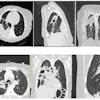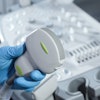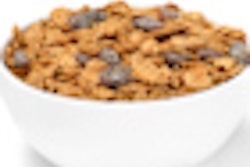New research published in Phytochemistry Letters reveals that raisins may benefit oral health because the fruit possesses antimicrobial phytochemicals that suppress growth of some oral bacteria associated with dental cavities and gum disease (November 2008, Vol. 1:3, pp. 151-154).
The study was conducted at the University of Illinois at Chicago (UIC) College of Dentistry by a research group led by Christine Wu, M.S., Ph.D., professor and director of cariology research at UIC. The research is part of ongoing UIC studies that examine various natural sources of compounds that possess antimicrobial activities against oral pathogens.
"The findings of this particular study build upon previous laboratory research identifying compounds in raisins as effective at inhibiting cavity-causing organisms in the mouth," Wu said. "Our investigation indicates there are several naturally occurring, beneficial phytochemicals in raisins that work to inhibit bacteria associated with dental caries and gum disease."
The in vitro study of Thompson seedless raisins, which was supported by the California Raisin Marketing Board, isolated eight known compounds from raisins, then tested each for antimicrobial activity against the oral pathogens Streptococcus mutans and Porphyromonas gingivalis. The research revealed half of the compounds exhibited antimicrobial properties.
One of the raisin compounds showing positive response to reducing pathogenic activity was oleanolic acid, the researchers said. Prior, nonrelated studies have revealed that oleanolic acid also has anti-inflammatory and antitumor properties, suggesting the benefits of this natural compound found in raisins may go beyond oral health.



















